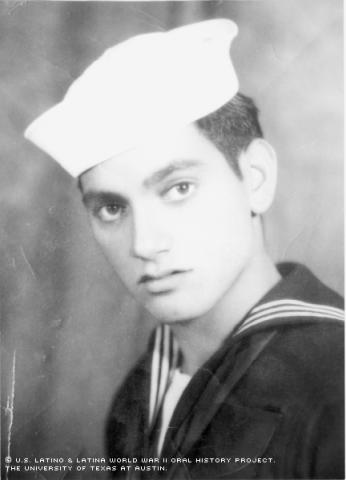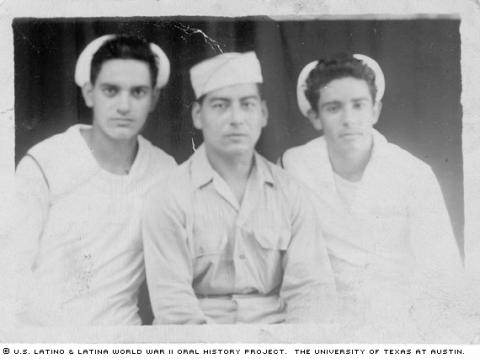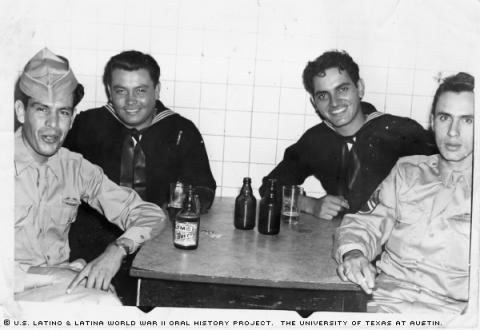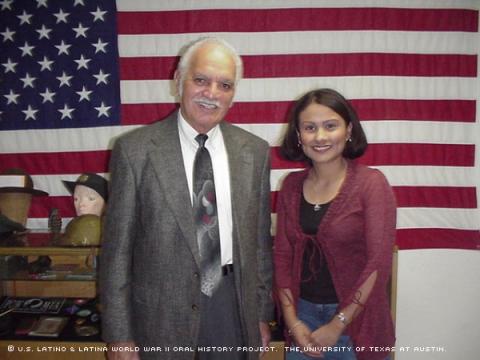



By Ismael Martinez
Gilberto Ornelas saw the aftermath of one of the most important yet horrific inventions of the 20th Century. His experience almost killed him but granted him many opportunities.
Ornelas was born in Globe, Ariz., on Oct. 18, 1925, where his father worked for a local mining company. Later, his family moved to El Paso, Texas. During the Great Depression, though, his family moved across the border to Juarez, Mexico. The Ornelases lived with his mother's parents, who had a profitable cattle business. Some of his fondest memories are of close moments with his family.
"I remember my mother used to love to dance to polka music," said Ornales, who also used to enjoy fishing and hunting with his family.
Ornelas' formal education concluded after the fifth grade; once the family moved to Juarez with his mother's parents, he stopped going to school. Before entering the war, as a young man, he began working for the Southern Pacific Railroad Company.
Ornelas was drafted and joined the Navy on May 10, 1944, and was shipped to boot camp in Norfolk, Va.
"All of the men who enlisted with me were Mexican Americans from El Paso," Ornelas said.
While in Camp Perry, Va., Ornelas played sports to pass the time and frequently visited Richmond, Va. He also remembers starting to learn how to swing dance.
In September of 1944, Ornelas traveled to the South Pacific on board the U.S.S. Volans. Survival meant keeping alert and getting an average of only four hours of sleep, as the crew had to be ready to protect itself from unexpected attacks, he says.
Ornelas traveled to various islands already captured by American troops, including New Caledonia in the South Pacific, where ships and submarines stocked up on supplies and ammunition. He drove a forklift and carried supplies on board to visiting ships and submarines. Having been ordered to stay on the island saved his life one day, as his original ship, the U.S.S. Volans, was attacked near Manila Bay.
"The ship was attacked and destroyed and killed all of my friends," Ornelas recalled.
He was assigned to another ship and continued to work hard. While on duty, his determination helped him move up the ranks, from Seamen 2nd Class to Seamen 1st Class to Fireman 1st Class.
During important missions, the crew had to put its biases aside about other people.
"Everyone respected one another," he said.
Even the captain of the ship became his friend after they talked while Ornelas was on watch duty. The open-mindedness of the crew helped them become successful on their next mission.
Ornelas saw duty on the U.S.S. Bottineau, which was ordered to test the effect of atomic bombs in the summer of 1945. After the August 6 bombing of Hiroshima and the August 9 bombing of Nagasaki, Ornelas wanted to continue to help, but became ill from an infected appendix. After the infection disappeared, he was honorably discharged from the Navy in 1947.
Back home in El Paso, he continued working for Southern Pacific. One day, however, he was suffering from an extreme headache – something he, unfortunately, had gotten somewhat used to -- so he visited a local emergency room. His doctor informed him that if he’d waited any longer to receive medical attention, he would’ve died.
Once Ornelas was able to start working again, he did well in his job and advanced at Southern Pacific. He married Lucy A. Avila when he was 28 and the couple had four children: Gilberto, Richard, Irene and Gloria. All four of their children received at least some college education. Ornelas is very proud of his son who graduated from Stanford University.
Now that Ornelas is retired, he’s grateful for the positive opportunities the war granted Latinos.
"If this country needs your help, I encourage everyone to help by serving his or her country in the armed forces," Ornelas said.
Mr. Ornelas was interviewed in El Paso, Texas, on February 2, 2002, by Liliana Velázquez.

